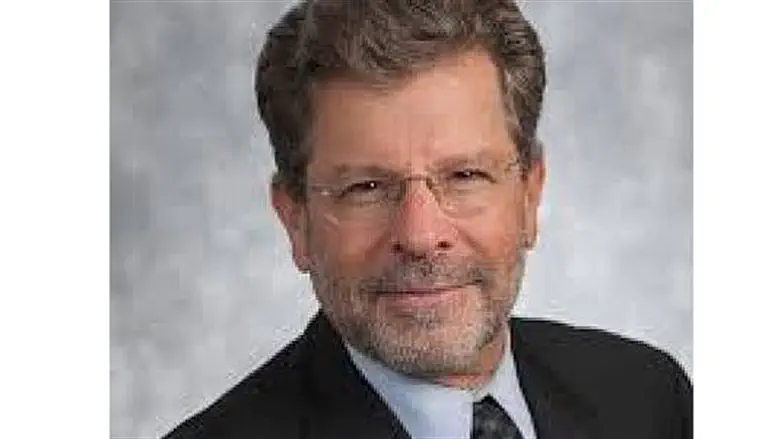
(JNS) Joe Biden entered the Oval Office planning to make climate change his national security priority.
The “forever” war in Afghanistan? He’d shut it down.
Iran’s rulers? He’d bring them into a “longer and stronger” version of the deal President Obama cut and from which President Trump withdrew.
Conflicts with Russian dictator Vladimir Putin and Chinese dictator Xi Jinping? Diplomatic solutions.
None of this has worked out. But leaders should expect the unexpected. Franklin D. Roosevelt didn’t plan to fight World War II. George W. Bush didn’t anticipate the attacks of Sept. 11, 2001. They adjusted. Has Biden?
I thought he might be on the right track, but on Saturday he tweeted: “Climate change doesn’t care whether you’re in a red state or a blue state. … Our national security is at stake.”
This suggests he will soon do what Sen. Bernie Sanders, Rep. Alexandria Ocasio-Cortes, and various activists have been demanding: declare a “climate emergency,” granting himself the power to ignore the will of Congress.
The National Emergencies Act is meant to be invoked only in response to new and unforeseen factors that pose an imminent threat to which the president must respond without delay. There is nothing new and unforeseen about climate change.
White House press secretary Karine Jean-Pierre acknowledged that, albeit inadvertently.
“The president was one of the first in Congress, when he was a senator, to ring the bell, the alarm bell, on climate crisis,” she told reporters last week.
Please don’t argue that this summer’s heat wave is what prompted Sanders and Ocasio-Cortez to up the ante. They began pressing for a “climate emergency” as early as the winter of 2021.
The immediate impetus is their failure to garner sufficient congressional support for a big climate and social welfare bill. Sen. Joe Manchin, the moderate West Virginia Democrat, agrees with Republicans that a large new spending package will do more harm than good at a time when inflation has reached a 40-year high.
If there’s no climate emergency, is there at least a climate crisis?
In “Unsettled: What Climate Science Tells Us, What it Doesn’t and Why it Matters,” Steven E. Koonin, who served in the Energy Department under President Obama, writes that there is substantial evidence that the climate is changing and that humans are having an influence. He then adds: “That we’re already seeing disastrous weather impacts and face an even more catastrophic future? Not at all obvious.”
We also should question whether the policies advocated by Sanders and Ocasio-Cortes are the best—or even a useful—way to address climate change.
For example, they want Biden to go beyond his current restrictions on fossil fuels and stop all oil and gas drilling on federal lands and waters. That would mean less supply. That would drive prices higher. That would benefit Putin and Iran’s rulers. American families would suffer.
Of course, he’s asked the Saudis to pump more. Is Saudi oil greener than American oil?
The bigger idea is to “transition” from fossil fuels to government-subsidized and weather-dependent renewables such as wind and solar power within 7.5 years. But if you “follow the science,” you know that’s not possible.
The world still gets as much as 85 percent of its energy from fossil fuels. As Bjorn Lomborg, president of the Copenhagen Consensus and visiting fellow at the Hoover Institution, has pointed out, “even if all current climate policies were fully implemented, by midcentury fossil fuels would still provide more than half of all energy used world-wide.”
Nor are wind and solar projects as “green” as advertised. They occupy vast tracts of land.
Electric cars? They run on batteries that require rare earth minerals. Mining those minerals, especially in underdeveloped countries, can cause significant environmental damage. What’s more, the rare earth supply chain is now firmly under the control of China’s geo-strategically minded rulers.
Despite its domination of “green” commodities, China accounts for over a quarter of global carbon emissions—exceeding the emissions of all developed countries combined. More than half China’s energy consumption comes from coal and Mr. Xi is currently constructing more coal-fired generators. Understand: If China is not onboard for reducing emissions, nothing the United States does will make any difference.
Longer term, there are some promising green technologies. Energy expert Robert Bryce is not alone in arguing that “nuclear energy is the only way we can produce electricity at scale while preserving the natural environment and reducing greenhouse gas emissions.”
He is particularly enthusiastic about a new small modular nuclear reactor being produced by Rolls-Royce that produces zero emissions and “will need 10,000 times less land than a wind project and about 1,000 times less land than what will be required by a solar project.”
Imagine if Biden were to announce that he is seriously exploring all options that can provide the clean, safe, reliable, affordable and abundant energy that Americans need now and in the future.
Imagine if he were to say that climate change is a challenge but what is most threatening to our national security is the hardening anti-American axis led by Putin, who is waging an imperialist war, Xi, whose military has become “noticeably more aggressive,” as Gen. Mark Milley, America’s highest-ranking military officer, remarked last weekend, and Iranian Supreme Leader Ali Khamenei, who vows “Death to America!” and whose nuclear weapons program is “galloping ahead” according to the head of the International Atomic Energy Agency.
Might that not persuade many voters that the president had begun to put America back on the right track?
I know that’s not what he had planned. But as the philosopher Mike Tyson once observed: “Everybody has plans until they get hit.”
Clifford D. May is founder and president of the Foundation for Defense of Democracies (FDD) and a columnist for the Washington Times.